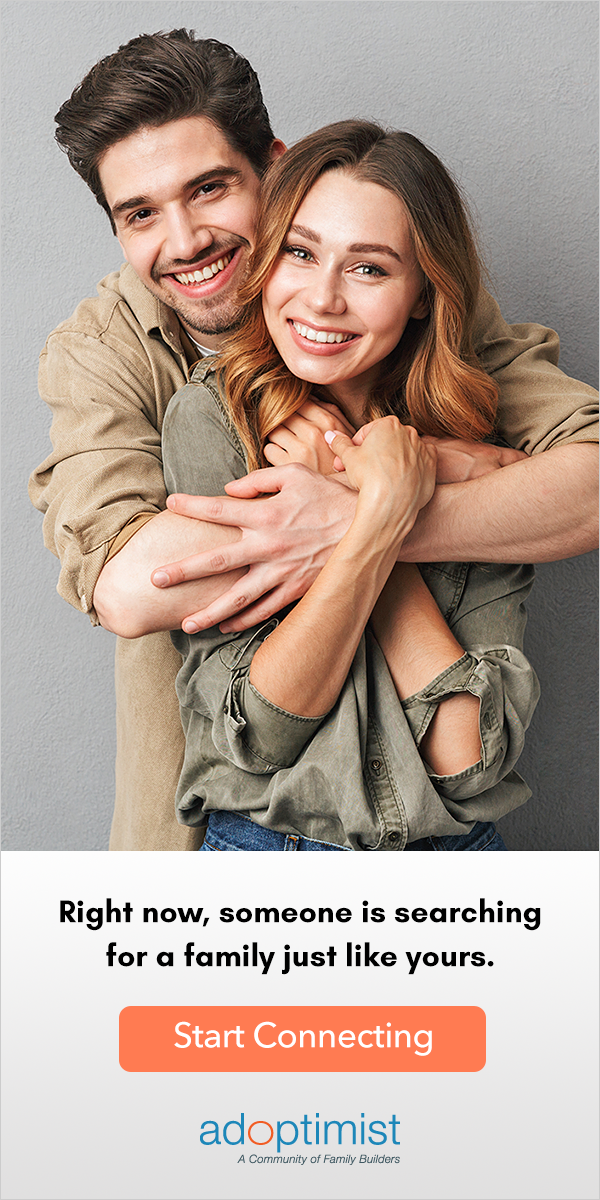The "Big Three" Questions Adoptees Think About
by Julie Ryan McGue

Adoption is a life-changing experience, one that brings together individuals and families from diverse backgrounds. For adoptees, however, it often comes with unique emotional and psychological questions that shape their sense of identity and belonging. While every adoptee’s experience is distinct, three questions commonly surface at some point in their lives: "Where do I come from?", "Why was I placed for adoption?", and "Who am I?"
Where Do I Come From?
For many adoptees, understanding their origins is a foundational aspect of their identity. This question often centers around biological heritage, family history, cultural background, and medical history. Knowing where one comes from helps adoptees piece together a fuller picture of themselves.
The absence of this knowledge can create a sense of void or curiosity that intensifies as adoptees grow older. Adoptees may wonder about physical resemblances to their birth family, shared talents, or inherited medical conditions. In closed adoption––cases where birth records are sealed or inaccessible––this question can feel like an unsolvable mystery, leading to frustration or a yearning for closure. However, resources like DNA testing and open adoption practices have provided new avenues for adoptees to explore their origins and establish connections with their biological families.
Why Was I Placed for Adoption?
Understanding the reasons behind their adoption is another critical question for adoptees. It’s natural to wonder about the circumstances that led to their adoption, as this often ties into feelings of worthiness, abandonment, or acceptance. Some adoptees might interpret their placement as a sign of rejection, even when the decision was made out of love or necessity. Adoptive parents play a crucial role in addressing this question with honesty, sensitivity, and age-appropriate explanations. For adoptees in closed adoptions, unanswered questions about their placement can lead to emotional struggles, but therapy, support groups, or reconnecting with birth families can help provide closure.
Who Am I?
The question of identity is perhaps the most profound and ongoing for adoptees. This involves understanding not only their past but also how their adoption shapes their present and future. Adoptees often navigate a dual identity: their biological heritage and their adoptive family’s influence. Striking a balance between these two aspects can be challenging, particularly when the two worlds feel vastly different.
A Personal Journey
My twin sister and I have always known about our adoption. We felt loved and wanted in the family our parents put together: three adoptees and three of my parents’ biological children. While I was curious about my birth circumstances, I lacked the courage to voice this aloud. But often at bedtime, the “big three” questions occupied my thoughts. I turned them over in my mind like stones on a beach.
Periodically, my adoptive parents broached the topic of our adoption and asked if we wanted to seek information. These moments felt uncomfortable, and my standard reply was, “No, I’m fine.” At that stage in life, I was content not knowing. To appear curious felt disloyal somehow.
Like many adoptees, I had imagined lives for my birth parents. In my mind, our birth mother was a popular cheerleader, and our father, a dreamy athlete. I pictured them as a passionate young couple, their intense relationship resulting in my twin and me. These fantasies, though baseless, offered comfort and structure to my musings about why we were adopted.
That changed when I turned forty-eight and was sent for a breast biopsy. Facing health concerns, I needed my adoption papers. Asking my parents for these documents was one of the hardest calls I’ve ever made. While they supported my search, their emotions were evident: fear, sadness, and disappointment. I reassured them that no one else could replace them as Mom and Dad.
Because Illinois’ adoption statutes had recently changed, I was granted access to my original birth record. But it was the non-identifying information in my adoption agency’s file that shattered my fantasies. My birth parents were not the high school sweethearts I imagined but rather two consenting adults—elementary school teachers—whose differing views on religion and marriage led to my adoption. Assimilating these truths took time, but it also brought clarity.
So, where do I stand now?
“Who I am” is shaped by four parents: the adoptive parents who raised me and the biological parents who gave me life. The “why” of my adoption remains the trickiest. Counseling helped me understand my birth parents’ decisions weren’t personal rejections, yet I still grapple with some revelations from my search.
Years have passed since my adoptive parents handed over my adoption papers. I remain in reunion with my birth mother and have connected with two siblings from my father’s first marriage. Sadly, my birth father passed away before we could meet. Despite the challenges, I’m profoundly grateful for the family I’ve found. As a result, my sense of self has never been stronger.
Launching my adoption probe wasn’t easy, but it was worth it. The health scare that started this journey became the key to resolving questions that had nagged me since childhood. Today I am content and fulfilled in knowing all the answers that shape who I am. My only wish is that I didn’t have to wait so long and work so hard at unearthing the answers to the “big three.”
